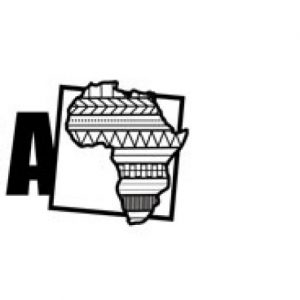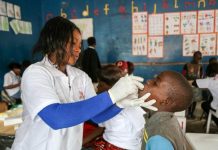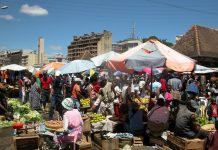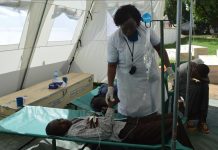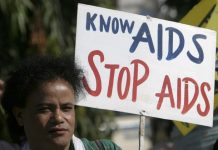Hamda Mohamed Omer’s introduction to midwifery was nothing short of harrowing.
What should have been a happy family event – the birth of her baby brother Khayre Mohamed Omer – turned into a terrifying ordeal for the eight year old Hamda.
Her mother, Zamzam Mohamed Elmi was giving birth at home assisted by a traditional midwife; that is, an untrained woman who had perhaps attended a few births in the past and won the title of ‘midwife’ among her friends and neighbours.
This woman pulled on the umbilical cord and broke it before the placenta was delivered, resulting in a massive haemorrhage for Zamzam.
Fortunately, a qualified midwife who was called by Zamzam’s husband arrived, appreciated the gravity of the situation and rushed Hamda’s mother to the Hargeisa Group Hospital, Somaliland.
That midwife was none other than Edna Adan Ismail. Some of you may know the inspirational woman she is today – but in the early Sixties, she was the very first qualified nurse/midwife in Somaliland.
At the hospital, when it quickly became clear to her that Hamda’s mother was gravely ill and urgently needed a blood transfusion, Edna herself volunteered to give the first pint of blood to save the woman’s life.
Hamda knew nothing of what happened next. She’d been abandoned with a helpless infant and a house full of blood to clean – which she did. Remember – she was just eight years old.
Although Zamzam came close to death during the four days she spent at the hospital, her recovery prompted a happy development, as after the traumatic events Edna made a point of looking out for the family and visiting regularly.
She also took on a lifelong interest in young Hamda’s wellbeing and progress.
A medical career
In context, Hamda’s mentor was and continues to be a formidable woman. Having qualified as a nurse and midwife in 1961, from 1965 she worked for the World Health Organization training others, was Somalia’s First Lady as the Prime Minister’s wife from 1967-69, later becoming Somalia’s first woman Director in the Ministry of Health from 1976-79 – and when she retired in 1997, she built a hospital in Hargeisa, which was opened in 2002, and is now a University Teaching Hospital.
Alongside running the hospital, Edna served the government of Somaliland as its first female cabinet minister as Minister of Social Affairs in 2002, and from 2003-2006, as the country’s Foreign Minister.
Having studied in the UK, Edna knew the life-changing significance of education – for girls and women in particular. To this day she remains a fierce advocate of this, and pursuing a medical career is something she encouraged Hamda to do from a young age.
Edna also wanted Hamda to replace the traumatic memory of almost losing her mother to the hands of an unskilled midwife. For this she encouraged Hamda to study midwifery and learn what it takes to save the lives of mothers and their babies.
This was met with her parents’ support and approval, and now, at 23 years of age, Hamda is an ICU midwife and nurse anaesthetist. She is one of a growing number of women who have benefited from medical training in Somaliland – an aspect of a conference called SANSOM (Safe Anaesthesia for Somaliland) Edna was very proud of.
While developing a more efficient and far-reaching healthcare system for her country is a central aim, the empowerment of women in a male dominated culture is another achievement Edna said she fought for in her work.
She said: “Education is one of the strongest gifts we can give to a human being.”
Career path
Presently studying to expand her skills in midwifery, Hamda said: “The best part about being a midwife is that you save two lives at the same time with your skills and knowledge. It can be anywhere, anytime – even if you have a mother labouring under a tree where there is no help, or even a medical centre – you can still do the delivery and save both lives.
“The biggest challenge for midwives living in Somaliland is when they have to make decisions about saving the mother, baby or both, and relatives or family of the mother or even her husband are not accepting of your decision.
“Sometimes they take the mother to another hospital where the investigations of the mother and baby may be hidden, they look for different solutions to the problem and make a different decision to the one I may have made – which is wasting time for the mother and baby’s chances to survive.
“That is one reason why neonatal and maternal morbidity and mortality rates are very high in Somaliland.”
The highs and lows
From those early days when Hamda witnessed her labouring mother in trouble, things haven’t really eased much.
She’s had to make some tough calls, and was clear that this was often tougher for her than some of her male counterparts in a society where the opinion – professional or otherwise – of women is often disregarded.
One mother whose life she saved had initially been attended by a traditional, unqualified midwife.
The consequence of this woman’s intervention was a ruptured uterus and the infant died.
While she survived, Hamda couldn’t save the mother’s uterus – it was beyond repair.
On another occasion, having saved both a mother and child who had travelled a great distance for medical attention, the mother sadly developed heart failure and renal damage a few days after delivering the baby.
Plans for the future
Hamda said she had definitely found her dual skills as a midwife and an anaesthetist strengthened her work, and while busy extending her midwifery skills she has her sights set on the future – and more hard study.
She said: “If I have even one chance to extend my skills as an anaesthetist, I’ll chase it as far as I can. It’s very important to have good skills, knowledge and experience to deliver safe anaesthesia.
“That way I can save thousands of lives for people who need to undergo operations.
“I am going to be a professional anaesthetist in the future, Insha Allah (God willing).”
It’s hard to believe this won’t be the case for a young woman who displays many of the attributes of her mentor, Edna Adan.
To learn more of Hamda’s story watch this film, commissioned and directed by Diamedica UK Ltd in Somaliland:
Hamda’s humanitarian compassion and drive to serve those in need – and work hard to improve her ability to do this well – is both staggering and inspirational.
Andrea Charters is the Communications Executive for Diamedica UK Ltd, a journalist, former newspaper sub-editor and was recently editor of two international medical journals.

